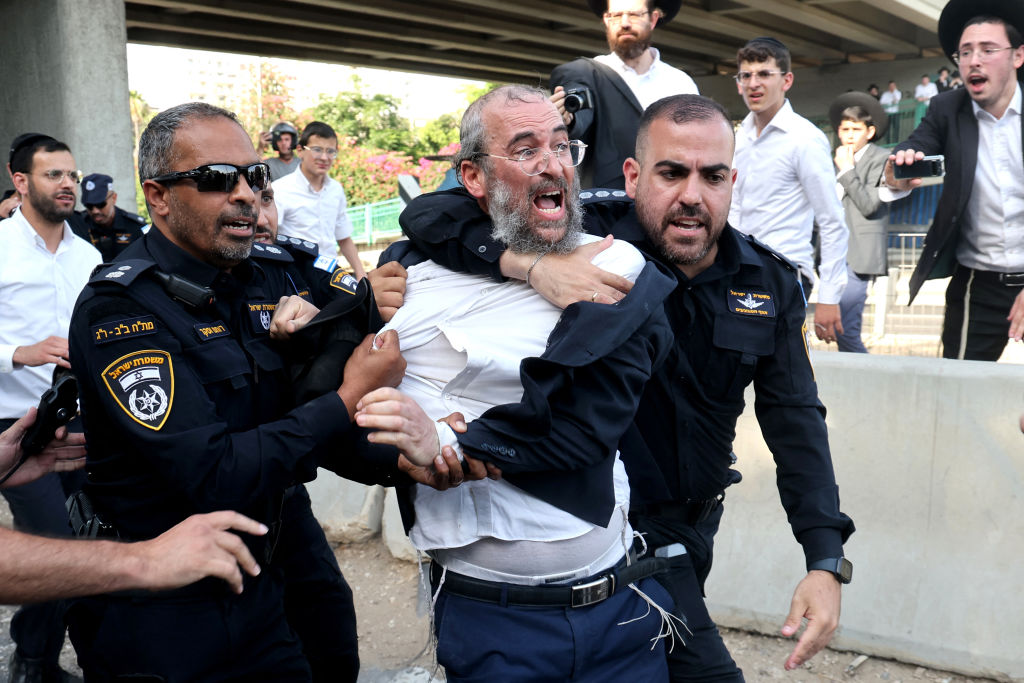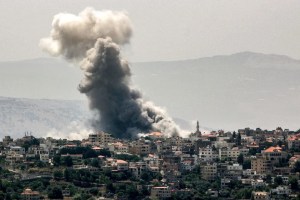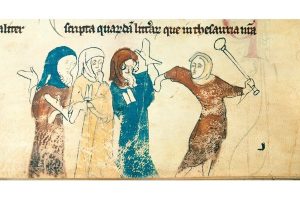In the middle of a war, Israel’s government is wobbling. Not because of the policy failures that led to the country’s worst disaster ever when Hamas invaded on October 7, 2023; not because of the slow progress of the war, its high human cost or its failure to recover the hostages; not even because of the looming threat of a major escalation in northern Israel and Lebanon. No, the threat to the stability of Benjamin Netanyahu’s coalition comes from within, after the Supreme Court ruled that the government must start drafting Haredi (ultra-Orthodox Jewish) men into the Israeli Defense Forces.
In 1948, as the newly-formed state of Israel fought for its independence against the invading armies of its Arab neighbors, David Ben-Gurion, the country’s first prime minister, made a fateful decision: the 400 Haredi men studying in religious seminaries would be exempt from military service. Seen by many as a dying relic of an old world, these few dozen students would be permitted to duck the draft and devote themselves to the full-time study of the Talmud.
The more extreme Haredi youths have been holding anti-draft protests which often turn into violent riots
Today, there are 63,000 young Haredi men who, were it not for Ben-Gurion’s decision, would be eligible to be drafted. Many of these men are effectively stuck studying, unable to join the workforce because leaving the seminary before the military exemption age of twenty-five would mean they’re obliged to join the IDF. Others, possibly thousands, are fraudulently claiming to be studying while they work “off the books” and avoid service.
Israel’s Supreme Court first struck down the framework for these exemptions in 1999, and since then there have been cat-and-mouse legislative and administrative patches, each successively overruled by the Court. Different governments have considered voluntary programmes to encourage some Haredim to serve, such as the controversial Netzah Yehuda battalion, financial incentives or just broad blanket exemptions.
During Naftali Bennett’s brief time in government, Israel’s priority was to bring Haredi men into the workforce rather than the army. That government proposed to lower the military exemption age to twenty-one, allowing Haredim to leave the seminaries and participate in national life. The bill was opposed by the Haredi parties, who feared it would make it easier for young men to leave the Haredi lifestyle. Benjamin Netanyahu’s Likud also voted against it.
Since the October 7 attacks, everything has changed. For the first time in decades, the IDF needs more soldiers, both for the short term of the war and the longer-term security of the Gaza area. Israeli youths’ mandatory service period is being extended, alongside much more reserve duty for regular citizens.
That extra squeeze on the average person comes just as the Supreme Court has, once again, ruled that the current exemptions for Haredim, which also come with per-student stipends and funding for Haredi seminaries, are illegal.
Netanyahu’s government came up with a clever wheeze a few weeks ago: they resurrected the Bennett government’s exemption bill, which they had previously opposed. But nobody’s buying it. Even inside the coalition there’s an understanding that the bill was a pre-war solution, and is effectively dead. Yoav Gallant, defense minister but no Netanyahu lackey, is also refusing to support any bill that doesn’t provide a path to “equal service” for Haredi men.
The Haredi political parties in the coalition are furious. In public, they claim (and probably believe) that by praying and learning, they are winning God’s favor, contributing much more to state security than mere soldiers. They see military service as a threat to their insular lifestyle, where their youths will be exposed to women, secular Jews and the internet. They also feel the loss of state funding to their seminaries and institutions, and with it a loss of their power and influence inside their own communities.
They haven’t brought down the government — yet. Polls suggest that if there was an election, Netanyahu’s government would lose and whatever replaced it may not have a place for them. Once kingmakers, the Haredi parties now consider themselves part of the “right-wing” bloc that backs Netanyahu — and will be out in the cold if he falls.
They do feel deeply aggrieved, though. This far-right/Haredi coalition was supposed to be a bonanza, allowing the Haredi parties to override the Supreme Court, create thousands of new state-funded rabbi roles for cronies, and cement their military exemption. Instead, almost all of their policy priorities have fallen because they’re too unpopular or there aren’t enough coalition votes to get them through. There’s a strong sense that the politically weak Netanyahu has failed them.
On Tuesday, following the latest Supreme Court decision, Israel’s attorney general instructed the IDF to draft 3,000 Haredi students, beginning from this coming Sunday. How this will happen remains to be seen. Will the police forcibly raid Haredi seminaries? Send thousands of summonses and see if anyone responds? What can any modern state really do to enforce a draft on an unwilling sector of the public, let alone one whose government is totally dependent on the support of that sector to stay in office?
In anticipation of forced conscriptions, the more extreme Haredi youths have been holding anti-draft protests which often turn into violent riots. One of the slogans of these protests, held on signs and graffitied on walls and bus-stops, is: “We will die rather than serve!”
Many reservists dryly observed that their reality is the opposite: they serve — and they’d rather not die.
This article was originally published on The Spectator’s UK website.


















